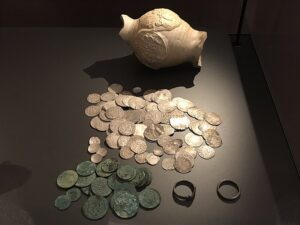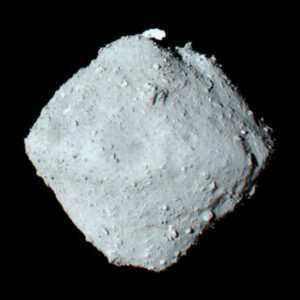 I use this word a bit but have never covered it before. Or uncovered it: that may be closer to its meaning.
I use this word a bit but have never covered it before. Or uncovered it: that may be closer to its meaning.
As someone who follows space-related news regularly, if not obsessively, I came across “trove” in this story about the comet Ryugu. The example from the piece shows common usage: “These samples are proving to be a veritable trove of information, not just about Ryugu but about broader solar system processes.”
I figured there would be a link to the French verb trouver meaning “to find,” since one thinks of treasure-hunters finding a trove of ancient gold or artifacts. The older use of our word got paired always with “treasure,” predating the solitary use of “trove” by several centuries.
The OED entry on this week’s word does not trace the link to trouver, but a page at the Linguistics stack-exchange does, going back even further, “The French verb. . . can trace its ancestry back to the Greek word τρόπος, which means a turn, manner, style, or figure of speech.” So we turn things up in a trove.
 Our little comet doesn’t look like it would turn up much, does it? We are not looking at solid gold. Ryugu’s real trove, however, is knowledge: we may have found a means by which early life emerged on our planet, through cometary bombardment with materials essential to, well, creating us and all life around us. Sobering thoughts for late winter, as plant-life begins to re-emerge from its nap?
Our little comet doesn’t look like it would turn up much, does it? We are not looking at solid gold. Ryugu’s real trove, however, is knowledge: we may have found a means by which early life emerged on our planet, through cometary bombardment with materials essential to, well, creating us and all life around us. Sobering thoughts for late winter, as plant-life begins to re-emerge from its nap?
Update: I made a few changes today, armed with coffee, to differentiate “trove” from “treasure trove.”
If you have a word or metaphor you enjoy, send them by e-mail (jessid -at- richmond -dot- edu) or leaving a comment below.
See all of our Metaphors of the Month here and Words of the Week here.
Image credits: Treasure trove from Bad Sassendorf-Herringsen and comet Ryugu courtesy of Wikipedia.

